
Position: Home >> Faculties >> Members of Chinese Academy of Engineering
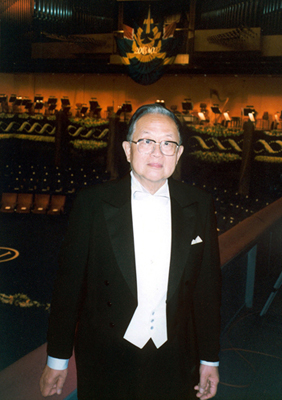
Prof. JU Gong was born in Shanghai in 1929. He graduated from Hsiangya Medical College in 1952 and was elected a Member of Chinese Academy of Science in 1991. In the year of his graduation, he was recruited by the PLA for a teacher of anatomy and thereafter appointed an assistant in the Department of Anatomy of the Fourth Military Medical University in 1953, mainly working on neuroanatomy. He is one of the founders of modern Neuroanatomy in China and he is the first to have published a paper in China using Nauta technique, a tract tracing technique which appeared in the 50s last century and marked a new era of neuroanatomy. In the late 70s and early 80s last century, among many publications, he, in collaboration with two colleagues, wrote a book of neuroanatomical technique. The book turned out to have great influence in China, even benefited many Chinese students of neuroscience in western countries. His early research interest was in hodology, the discipline of tract tracing, of the central nervous system.
Prof. JU has no experience of training aboard and very limited experience of visiting scholarship as well. He made his first visit abroad in 1985, which was an eight-month academic visit at Karolinska Institute, Stockholm, Sweden, followed by another six-month visit at the Salk Institute, San Diego, USA. On his trip from Stockholm to San Diego, he was invited to visit Oxford for one month, during which he accepted the invitation to be a member on the editor board of Neuroscience (a journal with high prestige in the field of Neuroscience), then the only Chinese member, and remains to be on the board till today.
In late 80s, he found that presence of nerve fibers was in close relationship with the anterior pituitary gland cells and typical central synapses on the gland cells and thereafter he switched his research interest to the study on the significance of the nerve fibers in the anterior pituitary, which resulted in 24 SCI publications and the hypothesis of neuro-humoral dual regulation of the anterior regulation. His work has been acknowledged by Prof. Béla Halász, Vice President of the Hungarian Academy of Sciences, in his Geoffrey Harris Memorial Lecture in the Ninth Internal Congress of Endocrinology.
In recent years, in pace with the rising international trends in the study of central nervous system regeneration due to its great theoretical and application values, Prof. JU has focused his major effort on the study of spinal cord injury and repair. A major achievement of his is to formulate a new therapeutic approach to treating spinal cord contusion at an early stage with dramatic success.
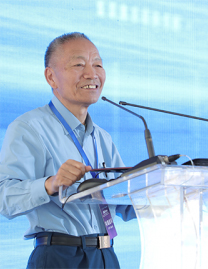
YU Mengsun, Academician of Chinese Academy of Engineering
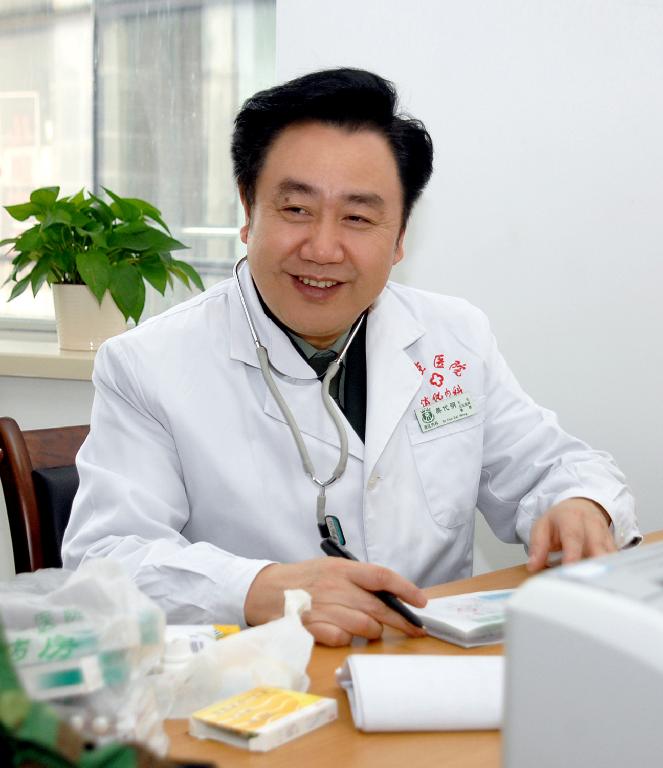
Professor Fan Daiming is the academician and vice president of Chinese Academy of Engineering, past president of Fourth Military Medical University, director of State Key Laboratory of Cancer Biology. He plays an important role in the national decision and administration of medical education, health care, and scientific research.
Professor Fan is now the president of Chinese Society of Gastroenterology, vice president of Chinese Anti-Cancer Association, council member and secretary general of Asian Pacific Association of Gastroenterology, awardee of Chang Jiang Scholars Program, a chief scientist of National Basic Research Program of China (973 Program). He is the president of World Congress of Gastroenterology (GASTRO2013) and Asian Pacific Digestive Week to be held in Shanghai in 2013.
He has a long-standing interest in both the clinical and basic research of digestive diseases, and has achieved a grand success especially in the study of gastric cancer. He has obtained a lot of national grants, including National Hi-tech Research and Development Program of China (863 Program), National Basic Research Program of China (973 Program) and Key Program of National Natural Science Fund, etc. He has won the first, second and third-class prizes of National Science and Technology Progress Awards respectively, and a third-class prize of National Technology Invention Awards. As an editor-in-chief he has authored 15 books on Gastroenterology and Oncology. As the first or corresponding author he has published more than three hundred papers inNat Clin Pract Oncol,Lancet,JAMA,Ann Intern Med,Hepatology,Gut,Plos Genet,Ann Surg,J Hepatol,Faseb J,Clin Cancer Res,J Biol Chem, etc. He has become the Editor or Associate Editor of 7 international medical journals.
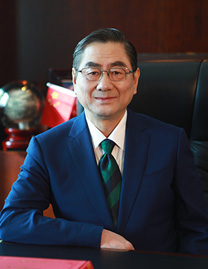
Zhi-Nan Chen, academician of Chinese Academy of Engineering; Expert in tumorous cytobiology and biopharmaceutics. Director of National Translational Science Center for Molecular Medicine of Air Force Medical University, major general of air force and professor, doctoral supervisor. Vice-chief expert of National Science and Technology Major Project of the Ministry of Science and Technology of China on major drug discovery; Member of the standing committee ofPLA Medical Scientific and Technology Committee and director of foundation and pharmacy; Vice-president of Shaanxi Association for Science and Technology; Member of Decision-making Advisory Committee of Shaanxi Province; Member of the Scientific Advisory Group of People's Government of Shaanxi Province; Science and technology consultant of Xi'an Municipal People's Government; Supervisor of Chinese Pharmaceutical Association; Chairman of Innovation Strategic Alliances of China Translational Medicine and Biotechnology; Editorial Committee ofJ Biol Chem,Hepatology,Science in China Series C: Life Sciences, etc. He has been awarded National Outstanding Scientific and Technological Worker, National Outstanding Backbone Teacher of Higher Learning, Excellent Teacher of Chinese PLA, Excellent Postgraduate Tutor of Chinese PLA, Outstanding Professional and Technical Talent Award of Chinese PLA, gold medal for Talents education in Military Academies, gold star in Science and Technology of the General Logistics Department, Changjiang Scholars and Innovative Research Team in University of Ministry of Education of China, Military science and technology innovation group, the General Logistics Department Excellent Teaching team, Shaanxi Sanqin Scholars Innovation team leader.He has a long history of basic and translational research in cellular and molecular medicine. He originally discovered the multi-temporal, multi-stage, and multi-node regulatory mechanism of inflammatory-cancer related molecule CD147 in cancer progression. He was the first to discover the pathogenic mechanism of major infectious diseases such as falciparum malaria and COVID-19 invading host cell receptors and their interaction with ligands, which is at the international advanced level. His research and development of new target antibody drugs and immune cell therapy products are leading in the world. He has established key technology platforms such as humanization and industrialization of antibodies, animal drug evaluation system of transgenic model, and immune cell reprogramming. He has published 255 SCI papers inNature,Cell Matab,Mol Cancer,Blood,and other international top journals and professional magazines, including 1 ESI hot paper (Top 1 ‰) and 4 highly cited papers (Top 1%); Awarded ESI Highly cited Scholar, "Top one hundred thousand Scientists in the world"; Owned 5 international patents and 35 national invention patents; Received 1 national class I new drug certificate, 1 class III medical device certificate, 2 new drug clinical trial approvals, 5 international clinical trial approvals, 4 clinical access for cell therapy products; Won the second prize of National Science and Technology Progress Award and 12 provincial and ministerial first prizes, 3 items of the top ten progress of national medicine and health / Chinese medicine and biotechnology, 1 item of the China Association for Science and Technology's 2021 "Science and Technology Innovation China" list for leading technology.
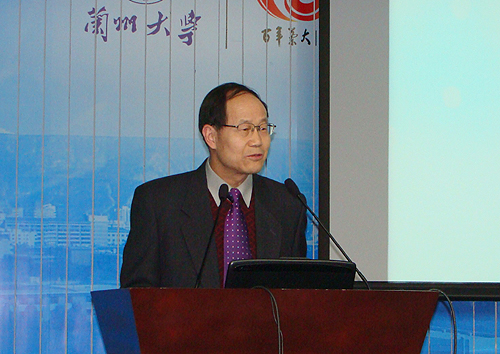
Prof. Zhang Shengyong (1939.11-) is the academician of National Academy of Engineering. He is a teacher of chemistry for Fudan university and the Fourth Military Medical University, respectively. Currently he is a professor and a Ph.D. supervisor in the Fourth Military Medical University. Prof. Zhang has trained 27 Ph.D. and M.S.,and he got numerous National and Military honors for his outstanding work for education.
Prof. Zhang has served as the member of the Chinese Chemical Society Committee and being the deputy director of Shaanxi Branch of the Chinese Chemical Society Member. Prof. Zhang is now the standing committee of the Military Medical Science and Technology Committee, vice president of Shaanxi Provincial Light Industry Association. Meanwhile he has been invited as a Visiting Professor for the Institute of “Chiral Drugs National Engineering Research Center”, as well as a Honor Professor at Northwest University and Shaanxi Normal University.
Research Interests
1. Asymmetric Catalysis
2. Synthesis of chiral drugs
3. Resolution of racemic compounds
4. Analysis,separation and determination of optical purity of chiral compounds.
Main achievement
So far from 1979 the chiral catalyst has been engaged in research, for example the design and synthesis of chiral ligands and chiral catalyst, and the asymmetric catalytic reactions. A number of key issues had been work out.
1. Two new synthetic methods on chiral phosphine ligands were established, which were based on the stereoselective Diels-Alder reaction and nucleophilic addition of chiral epoxides.
2. By introducing the –OH,-SO2- or any other polar group to cinchona alkaloid nuclear, a group of recyclable and reusable cinchona alkaloid derivatived ligands for Sharpless AD reaction was prepared. Via the ion- exchange technology bonding OsO4 to TentaGel resin, the recyclable and reusable catalyst TentaGel-OsO4 for AD reaction was obtained.
3. Novel chiral ligands based on cinchona alkaloids and their Rh and Ir complexes were designed and prepared, which were successfully used in the asymmetric hydrogen transfer reaction of prochiral ketones, resulted in up to 93% yield and 97% ee.
4. A group of new cinchona alkaloids ammonium salts were synthesized. And they have been successfully used in asymmetric phase-transfer catalysis and obtained up to 96% ee.
5. A series of new cinchona alkaloids catalysts were designed and synthesized in asymmetric “interrupted” Feist-Benary reaction, which got up to 91% yield and 94% ee.
6. D-phe, L-phe, anti-cancer drug taxol and docetaxel were first synthesized in an industrial scale by chiral catalysis in China.This work has made important contributions to improve the technologies of producing chemical pharmaceuticals and fine chemicals of China.
Awards and honors
1. The gold prize of scientific and technological progress of the army’s (1997, first author)
2. The bronze prize of State Technological Invention (1999, first author)
3. The gold prize of technological progress in Shaanxi Province (2004, first author )
4. The gold prize of technological progress in Shaanxi Province (2007, first author)
5. Science and Technology Development Foundation of China issued the “Drug Development Award” (2000)
6. “the Ninth Five-Year Plan ”army’s logistics major scientific achievement award (2000)
7. The entire army outstanding teachers (2004)
8. The national outstanding science and technology workers (2005)
9. The national honourable teachers (2006)
10. Enjoying the Government Special Allowances
Publications & Books
Published 4 monographs, such as 《Asymmetric Catalysis》,《Asymmetric Catalysis: new concepts and methods》,《Organometallic chemistry 》; 5 patents in China; 153 papers (of which 69 were included by SCI, 11 was included by EI).
8 textbooks, such as《Organic Chemistry》(editor-in-chief), 《Experiment Organic Chemistry》(joined editor) were published. 《Organic Chemistry》got the first and second prize of Excellent Teaching Materials by the State Education Commission.
Air Force Medical University(AFMU)
No.169,Changle West Road
Xi'an,Shaanxi,710032,P.R.China
Copyright © 1997-2018 FMMU.EDU.CN